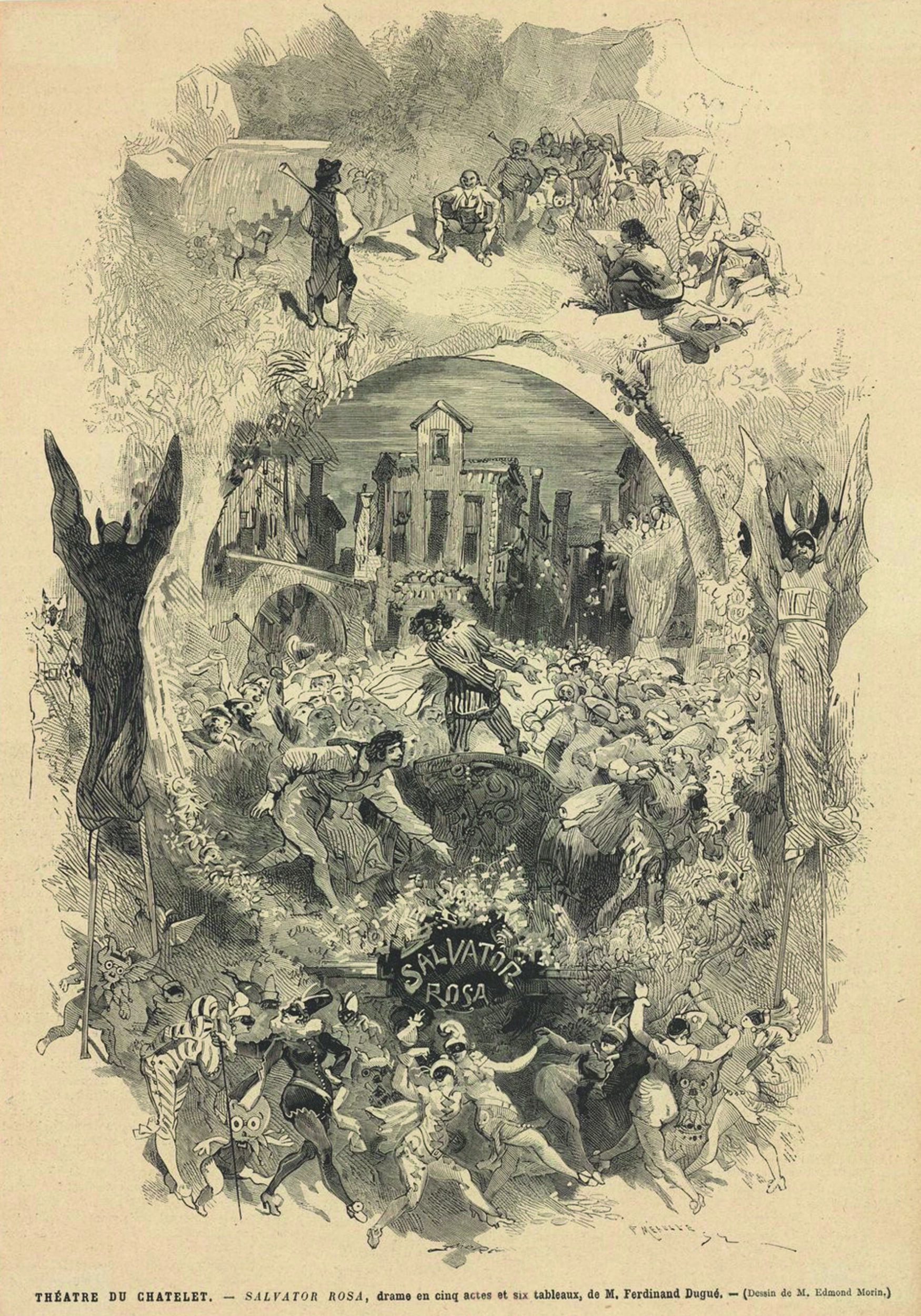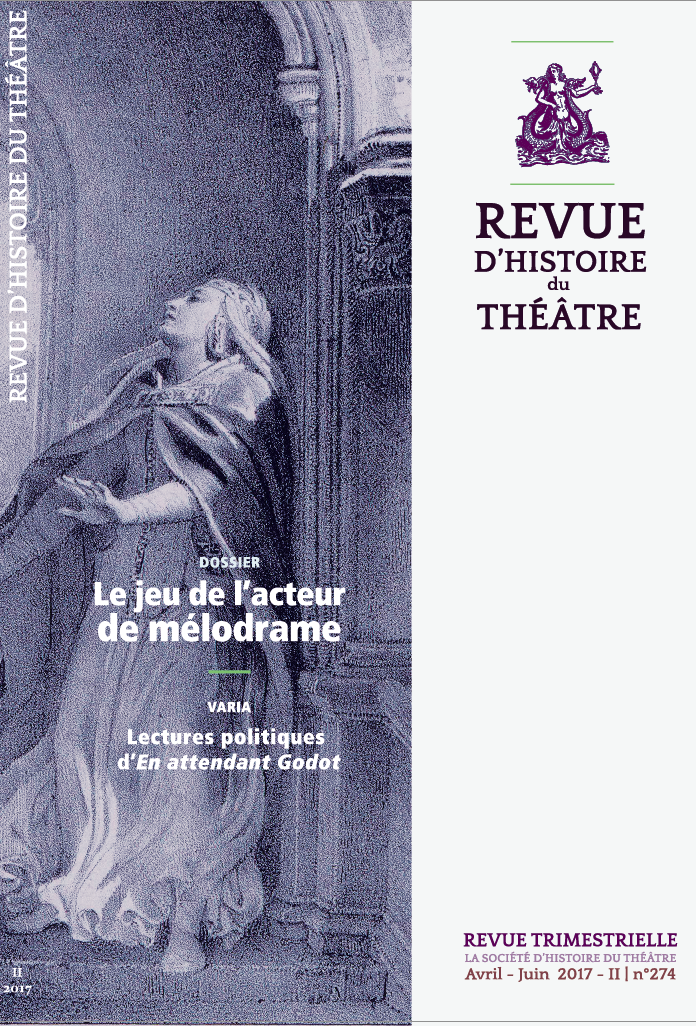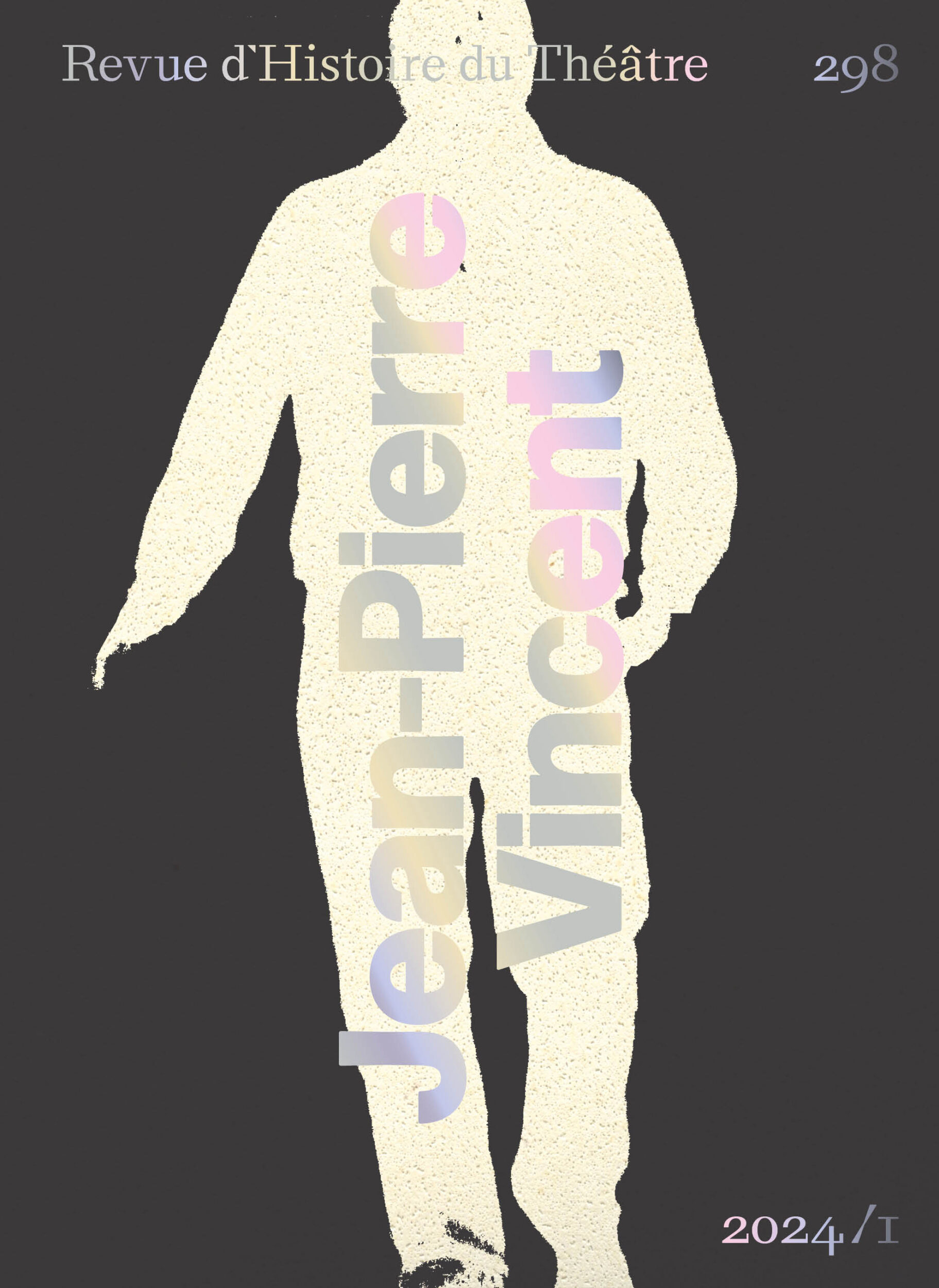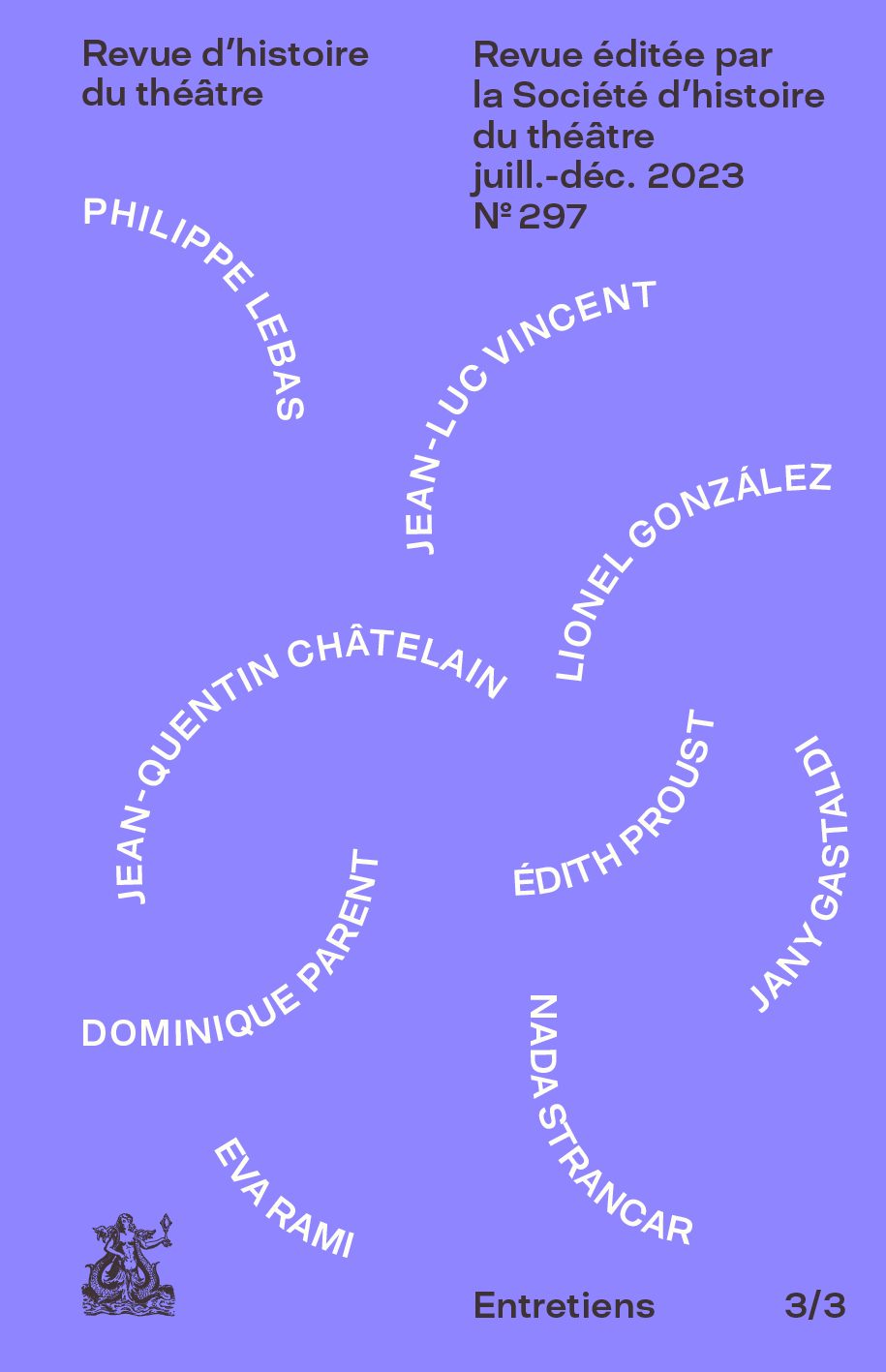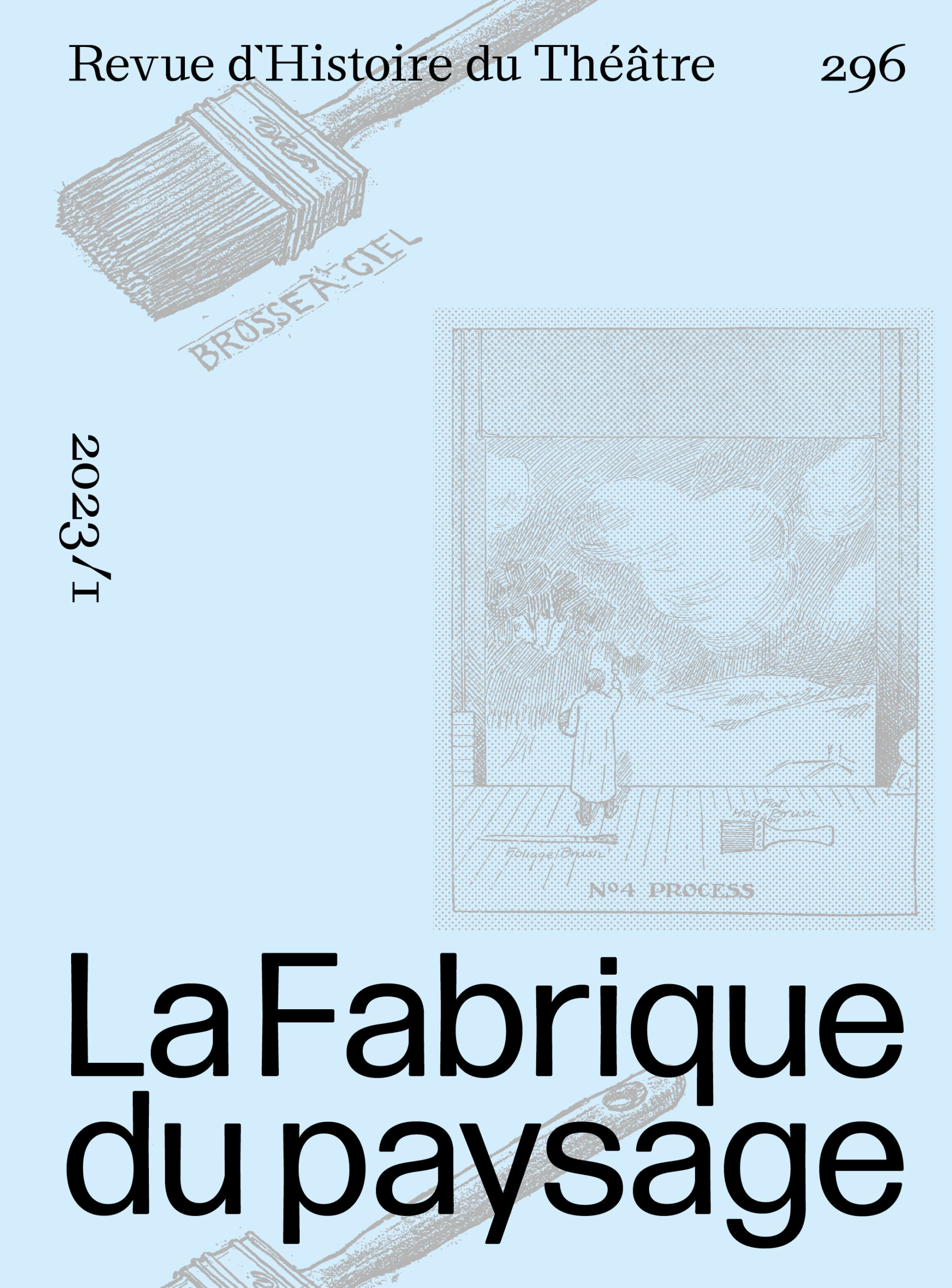Revue d’Histoire du Théâtre • N°274 T2 2017
Héritage et transformation du jeu mélodramatique au cinéma
Résumé
L’article propose une réévaluation, sur la base d’un dialogue critique avec les études américaines disponibles sur le sujet, de l’apport des techniques de jeu mélodramatique à l’industrie cinématographique mondiale. En effet, la contribution du mélodrame du XIXe siècle, en tant que formule internationale de spectacle de qualité, à la formation du spectacle cinématographique a été soulignée, dès les années cinquante, par les chercheurs américains. Ces travaux pionniers, réactivés récemment, pêchent cependant par une vision purement instrumentale du jeu de l’acteur du cinéma muet, et ignorent, dans leur majorité, le phénomène de l’adaptation de l’emploi mélodramatique au spectacle cinématographique.
Abstract
The artistic legacy of the melodrama in the shaping of the film acting
Discussing the American studies about the melodrama of the XIXth century as « proto-cinematic », the paper explores the contribution of the melodramatic acting to the making of the international film industry. A vision of the film acting in the silent movie as a pure body technique is an obstacle to the recognition of this contribution, the theatrical training of the players of the silent film being generally understood as an obstacle to the genuine film acting, based on the personal involvement codified by the Actors studio. By emphasizing the emotional effectiveness required both of the players of the theatrical melodrama and of the feature film, the paper underlines the continuity between the interpretation of the stock characters of the melodrama and the film acting in the silent movies.
Vous n’avez actuellement pas accès au contenu de cet article. Veuillez vous connecter à votre compte, vous abonner à la revue, ou acheter cet article ou ce numéro pour le visualiser dans son intégralité.
